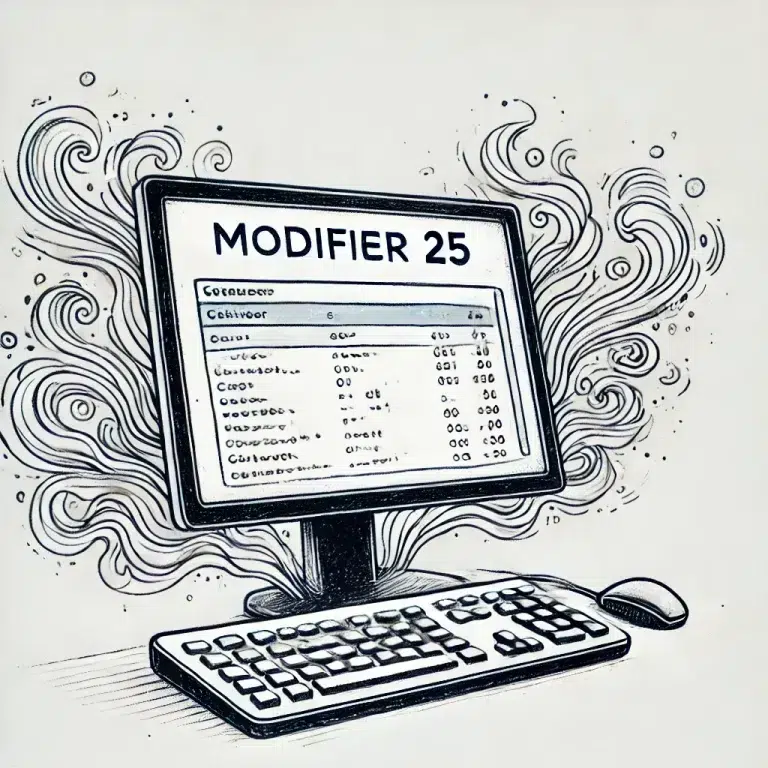Receiving a certified letter from CMS about an impending audit can be a nerve-wracking experience for any health care provider—and rightfully so. The consequences of CMS finding your practice at fault can be severe, ranging from financial repayment to exclusion from programs and even imprisonment. Needless to say, a CMS audit is a serious matter. However, if you do find yourself in this situation, there are steps you can take to mitigate the potential damage. Michelle Netoskie, Fuel Medical’s Billing, Coding & Compliance Manager, answers this Ask Fuel First question: How do I deal with a CMS audit?
What Is CMS?
The Centers for Medicare & Medicaid Services (CMS) is a federal agency within the U.S. Department of Health and Human Services that administers Medicare and Medicaid, sets standards and regulations, prevents fraud and wasteful spending and tries to improve the quality of care. An audit from CMS is an audit from the federal government, a request that must be taken seriously and complied with to the best of your ability.
Types of Audits
There are several types of actions CMS may take when reviewing your case, such as the following:
- Post-payment review: This review occurs after you submit claims for payment and is often the first step CMS takes. At this point, CMS usually investigates a small number of claims. They’re looking for several things:
- Have you billed patients for medically necessary services?
- Does your documentation support billing?
- Are your codes correct?
- Are you following CMS rules?
- Forensic audit: CMS will initiate a forensic audit of the practice if fraud or abuse is suspected. The audit may focus on one provider, a specific service or certain faulty transactions. This can be a lengthy process. They’re looking for the following:
- Are there patterns of misuse?
- Are costs within a reasonable range?
- Are you following CMS rules?
- Prepayment review: A payment review ensures the practice uses the correct billing codes before services are rendered. If you’re in prepayment review, you’ve probably made billing and coding errors in the past. This will affect your business because claims will be held until CMS receives the documentation.
- Validation audit: After you’ve been audited, CMS will provide recommendations to correct your billing and coding process. The validation audit occurs after you’ve taken corrective action to ensure you don’t have errors in the future.
You’ve Been Audited. Now What?
Once you receive notice that you’ll be audited, the first step is to remain calm. An audit doesn’t necessarily mean you’ve done something wrong. Be sure to read the letter carefully to understand the scope and timeframe of the audit. Next, gather your team to prepare. You may even discuss the matter with a billing and coding consultant, like Fuel Medical’s Michelle Netoskie, or an attorney.
CMS will set up a meeting to explain the scope of the audit and request documentation. Never hand over documents without reading them first because the auditors will examine them and may ask you additional questions. Once the auditors decide whether errors have been made, they’ll present you with their findings and discuss areas of concern. These areas will be the focus of a corrective action plan. Then, CMS will compile a final report and list any repayments if applicable. At this point, you may accept their decision and make arrangements to take corrective action and repay claims. Alternatively, you can appeal their decision by providing explanations and additional documentation to support your appeal.
Common Errors and Ways to Prevent Them
After you learn why you’re being audited, you need to identify your error and plan to prevent it from happening again. Although each audit is unique, there are some common errors, such as the following:
- Error: Missing modifier: If the audiologist sees a patient without a physician’s order, they must use the AB Modifier when billing Medicare. If you’re being audited for this issue, return to your patients’ files and check if orders are present. If not, check if a modifier was used.
- Prevention Technique: The AB Modifier was implemented so audiologists could do diagnostic testing without a physician’s order as long as the condition is non-acute and doesn’t result in the sale or maintenance of hearing aids. To prevent this error, train your staff about the rules and regulations of modifiers.
- Error: Service and diagnosis don’t match: To ensure your claims get paid, the service and diagnosis must match. The problem in this situation is the documentation. Providers get busy and take shortcuts when writing patient documentation, using generic statements or providing little information. Poor documentation leaves the auditors questioning whether the services were provided and does little to support your claims.
- Prevention Technique: If you notice that your providers lack documentation skills, it’s in your best interest to educate them. Fuel Medical can assist you with provider education.
- Error: Using an old cheat sheet: Some errors result from using codes that have been changed or changing rules surrounding specific codes. If the people doing your practice’s coding don’t keep up with updates, you could find yourself in the middle of an audit.
- Prevention Technique: One way to prevent staff from using erroneous codes is to hire a certified billing and coding specialist. If you don’t have the budget or ability to hire such a professional, hire one to consult with your staff periodically to illustrate recent or upcoming changes. Any cheat sheets should be updated during these consultations.
- Error: Too many tests were performed: There are times when additional testing is necessary to provide a comprehensive diagnosis, but there are other times when too much testing was performed. If an audiologist isn’t confident with their initial diagnosis, they may run a gambit of other tests just to be sure. If CMS finds that you’ve billed them for tests that weren’t medically necessary, you’ll be liable for repayment.
- Prevention Technique: Often, new providers are the ones running too many tests. Initiate a mentor program where a more experienced provider takes a new graduate under their wing, allowing them to talk through diagnoses and other issues they face on the job.
CMS audits can be minimal, such as reviewing a single claim, or extensive, where all of a provider’s claims or certain services are reviewed for a specific time period. It’s important that you take both types of audits seriously. A single claim review may be the impetus for a larger program review. The best way to deal with an audit is to prevent it from happening in the first place. Learn from the errors we’ve noticed other practices make and take preventative action today. If you do end up in an audit, let your regional team know so our billing, coding and compliance manager can guide you through the process.



